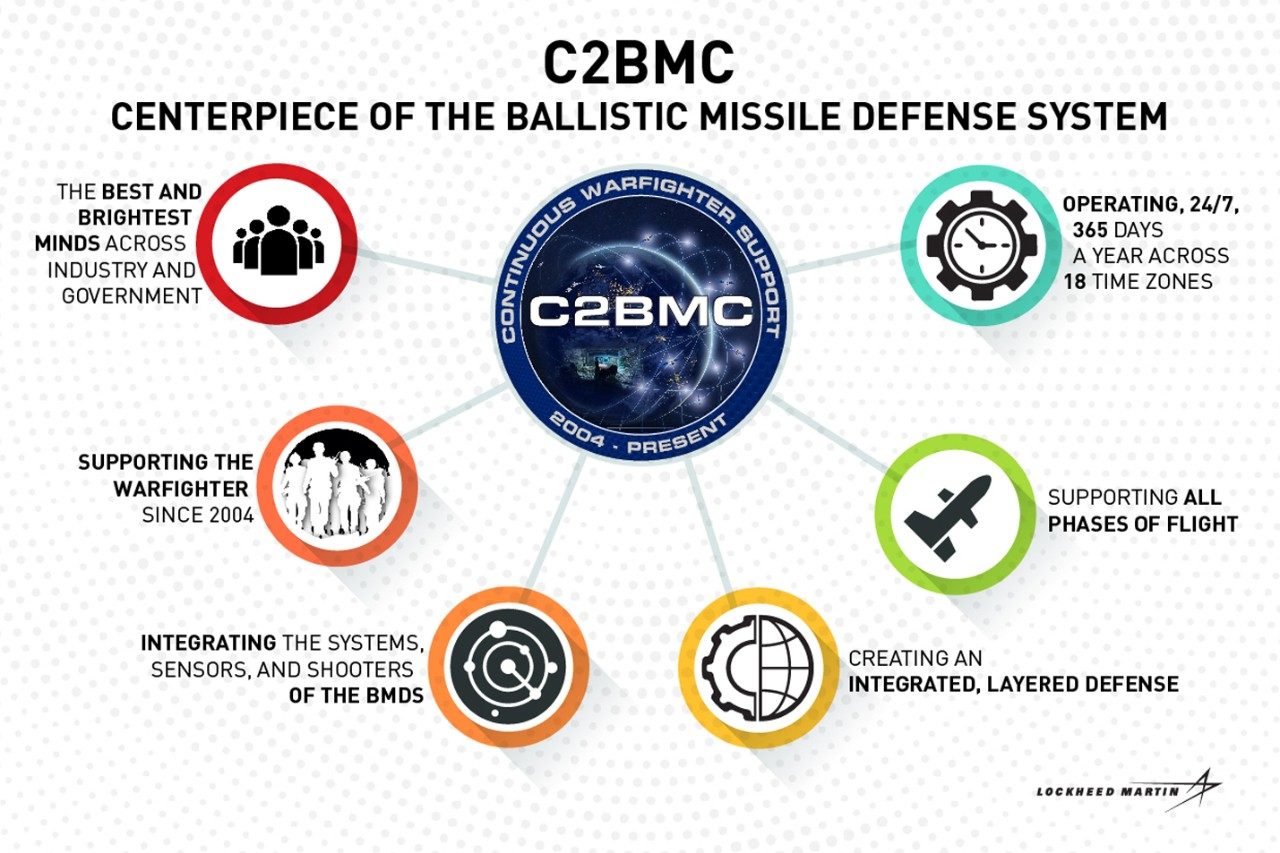Satellites detect a ballistic missile fired toward U.S. interests and suddenly alerts are sounded within the command center. A team of operators who have specific command authority quickly leverage a highly interoperable command and control system to correlate and analyze available sensor data. The system provides the operators tools to evaluate the best course of action and then distribute engagement information to a network of forces around the world. An interceptor is launched, and the threat is defeated, protecting our military and our allies from harm.
While this could be a plot line in a summer action movie, it is also a real-life drama that has potential to play out in locations across the globe. And the sophisticated system enabling this scenario is the Command and Control, Battle Management and Communications (C2BMC) system.
Centerpiece of the Missile Defense System
As the foundation of the Missile Defense Agency’s (MDA) Missile Defense System (MDS), C2BMC is the force multiplier that globally and regionally networks, integrates and synchronizes autonomous sensors and weapon systems and operations to optimize performance.
Fielded and operational since 2004, C2BMC gives commanders at strategic and operational levels an integrated picture of ballistic missile threats across the globe. This multi-domain command and control system combines tracking data from ground, sea and space sensors, then passes engagement commands to ground- and sea-based weapons systems in full interoperability with allied and coalition partner networks. This allows commanders to make coordinated command and control decisions regarding the most effective way to track and engage ballistic missile threats.

One Team, One Mission, Swift Capability Development
Since 2002, Lockheed Martin has led the C2BMC team, a partnership of highly responsive industry leaders from Boeing, General Dynamics, Northrop Grumman, Raytheon, and small businesses, that operate as one integrated team always putting the customer’s mission first.
Truly integrated missile defense can never be static. That is why our “best of the best” team upgrades the C2BMC system using an agile development process that supports new development. With this agile approach, our experienced team can make rapid changes using continuous delivery pipelines and automated testing to ensure software quality. Software releases can be deployed quickly and predictably to the field utilizing automated deployment packages. Over the past 15 years, the team has fielded seven major operational updates, with each update increasing the global capabilities of C2BMC and the MDS. The next two operational updates are currently in the development pipeline.
Global System, Global Reach, Global Support
As an operational system built on a modern, highly available and extensible architecture, C2BMC continues to showcase the benefits of a layered multi-domain missile defense that protects the U.S. and its allies from an increasing operational tempo and sophistication of missile threats.
In the physical implementation of the system, C2BMC connects MDS elements across 18 time zones, including the Strategic, Northern, European, Indo-Pacific and Central Commands as well as more than 30 other sites around the world.
Moving forward under the leadership of our MDA customer, we are using agile development processes to develop capabilities to track and defend against advanced threats and to be continually advancing the security and speed of the MDS highly available network. Expanded interoperability with U.S. allies is key to increasing global operational capability.




